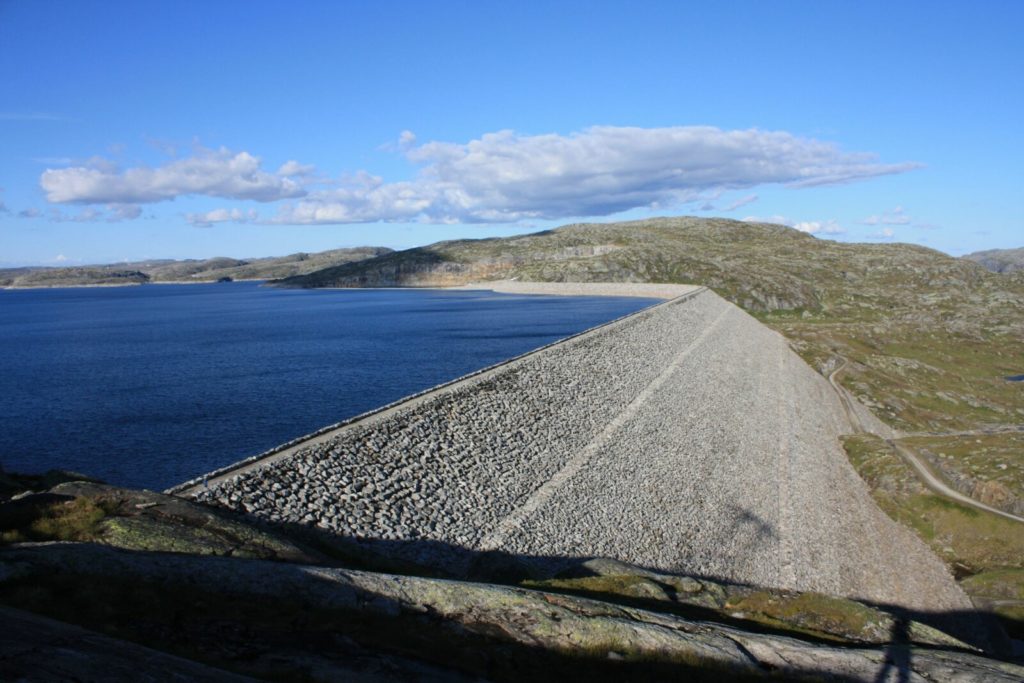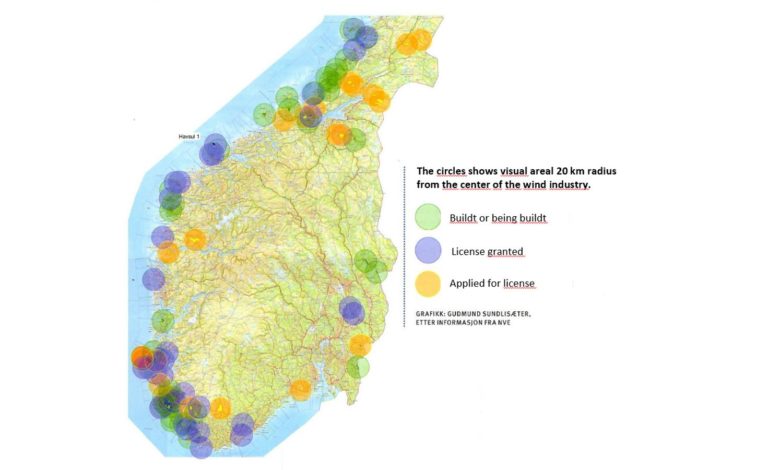
OPINION by Trygve Tamburstuen, Chairman of the Board, Oslo Stockholm in less than 3 hours AS
We must regain control of our power resources, radical changes are needed.
The government has introduced measures to limit the harmful effects of high electricity prices. The Minister of Energy calls the situation extraordinary. But this is a structural crisis, which the Government must treat as such. Electricity is supposed to be a common good. If we do not clean up the complete market fundamentalism of electricity sales, water will be the next thing that is exposed to the same thing. Getting electric power from power plants to homes and businesses is really a very simple process. But we have managed to make it unnecessarily complicated and now also very expensive.
It is complete nonsense how electricity prices have run completely wild.
Electricity is easy to sell – like toilet paper, it is a necessity. But as a result of one of the world’s most liberal energy laws, completely unnecessary intermediaries entered electricity sales.
Earns billions
The power exchange NordPool was to function as a trading center for Norwegian power, owned by the State. But when this is now owned 66 percent by the Dutch-based listed company Euronext – which also owns the Oslo Stock Exchange and which took 392 million in dividends out of Norway last year – Norwegian power is completely at the mercy of market forces in Europe. In addition, we got the electricity sellers – who do not contribute to any value creation but run off with the biggest profits.
Electricity must be a common good.
These companies are largely owned by international financial companies that bring large profits and dividends out of Norway. The three largest electricity companies earned 1 billion net in Norway in 2020. This was far from the intention behind the energy law, but the politicians abdicated from the energy policy after the law was passed, and let bureaucrats and speculators abuse the law. As a result, the market price for our fully repaid hydropower, which costs a few øre / kWh to produce, is equal to the production price for polluting coal power in Europe plus a CO tax.
Lost control
In addition, we have built many cables to Europe, financed largely with Norwegian electricity and tax money. But we have obviously neglected to secure control over how the power in these cables is to be controlled. Even during periods of extremely high electricity prices in Norway, we have sent electricity out of the country. This will continue if we do not make dramatic changes because the rest of Europe will need large imports of electricity. We see this clearly through the high imports of Norwegian gas, which the EU will now define as green energy.
There is no point in a foreign-owned listed stockechange company earning billions on Norwegian electricity.
It is also incredible that Norwegian electricity, which is exported in large quantities, is not subject to the same energy tax that we all in Norway have to pay.
Radical changes are needed
For those of us who will be working and living in Europe’s darkest, coldest, and most energy-rich countries, it makes no sense that electricity prices have run completely wild. This is a structural crisis. And it must be solved with radical structural, political measures because this was not the purpose of the Energy Act.
- Take control of NordPool and let Statnett and Norwegian power and grid companies handle electricity sales. There is no point in a foreign-owned listed company being able to earn billions on Norwegian electricity and take huge dividends out of Norway.
- Let users buy power from this new device – based on a cost-plus principle. In this way, producers and grid owners are directly plowed back a reasonable profit that is used for power plant and grid upgrades. There is a potential for a significant increase in production in existing hydropower plants, without encroachment on nature.
Make sure that power plants and grids remains Norwegian owned.
- This means that the so-called electricity companies disappear from the market.
- Set a requirement for a minimum magazine filling throughout the year – and make sure that this is complied with. Our reservoir capacity accounts for 70 percent of our annual production of hydropower and is built precisely to store energy. This capacity is unique in Europe.
- Renegotiate the agreements on foreign cables so that Norway has national control over what is to go in and out of electricity.
- Order Statnett to invest in the main grid so that one avoids the bottlenecks that create the large price differences domestically.
- Drop the electrification of the shelf – give the oil companies a small tax incentive and demand that the exhaust gases from the gas turbines be cleaned within a given deadline. [many reservoirs has high temperatures which cold turn them in to termal energy wells].
The electricity sellers do not contribute to any value creation, but run off with the profit.
- Make preparedness – legally and financially – to ensure that power plants and grids remain in Norwegian ownership.
- Use the ownership in Statkraft and Statnett to ensure that these two companies fulfill their assignments in Norway. Strengthen the work with real energy saving, and start the work with geothermal energy.
Politicians abdicated from energy policy after the law was passed.
This will give us back control over the important power resources that far-sighted politicians have built up, but which market fundamentalism is now about to destroy.
All countries protect their so-called comparative advantages – as hydropower is for Norway.




46 Comments
Pingback: เว็บ uplay168 คืออะไร
Pingback: recurve bow
Pingback: ト妥。nh bom li盻「 ch蘯ソt
Pingback: Dark net
Pingback: ต่อขนตา สีลม
Pingback: แทงบอล
Pingback: pg333
Pingback: สินเชื่อรถบรรทุก
Pingback: fox888
Pingback: lottorich28
Pingback: solventi
Pingback: free cams
Pingback: คาสิโนออนไลน์เว็บตรง แหล่งทำเงินของนักพนัน
Pingback: รถโฟล์คลิฟท์
Pingback: the best thai massage in denver
Pingback: ปั้มไลค์
Pingback: sweet bonanza
Pingback: สล็อตเว็บตรง
Pingback: trusted link
Pingback: นัดเด็ก
Pingback: Lowara
Pingback: https://desafiobootcamp.es/desafio-boot-camp-politica-de-cookies/
Pingback: Brians Club
Pingback: ขนส่งจีนไทย
Pingback: บ้านพักคนชรา
Pingback: essentials fear of god
Pingback: รับซื้อกระเป๋าแบรนด์
Pingback: slot book of ra
Pingback: แฟนเช่า
Pingback: เกียรติบัตร
Pingback: Debelov
Pingback: ครูเกอร์
Pingback: personal trainer bangkok
Pingback: 123bet login
Pingback: ALPHA168 คืออะไร
Pingback: เว็บดูหนังออนไลน์ฟรี 24 ชั่วโมง
Pingback: ดูหนังออนไลน์ฟรี
Pingback: ศูนย์ดูแลผู้สูงอายุ
Pingback: silicone doll of rem
Pingback: รับจด อย
Pingback: Thai Massage Manhattan
Pingback: ติดเน็ตบ้านทรู
Pingback: Latakia tobacco Canada
Pingback: แมนยู ล่าสุด
Pingback: suzuran168
Pingback: Angthong National Marine Park